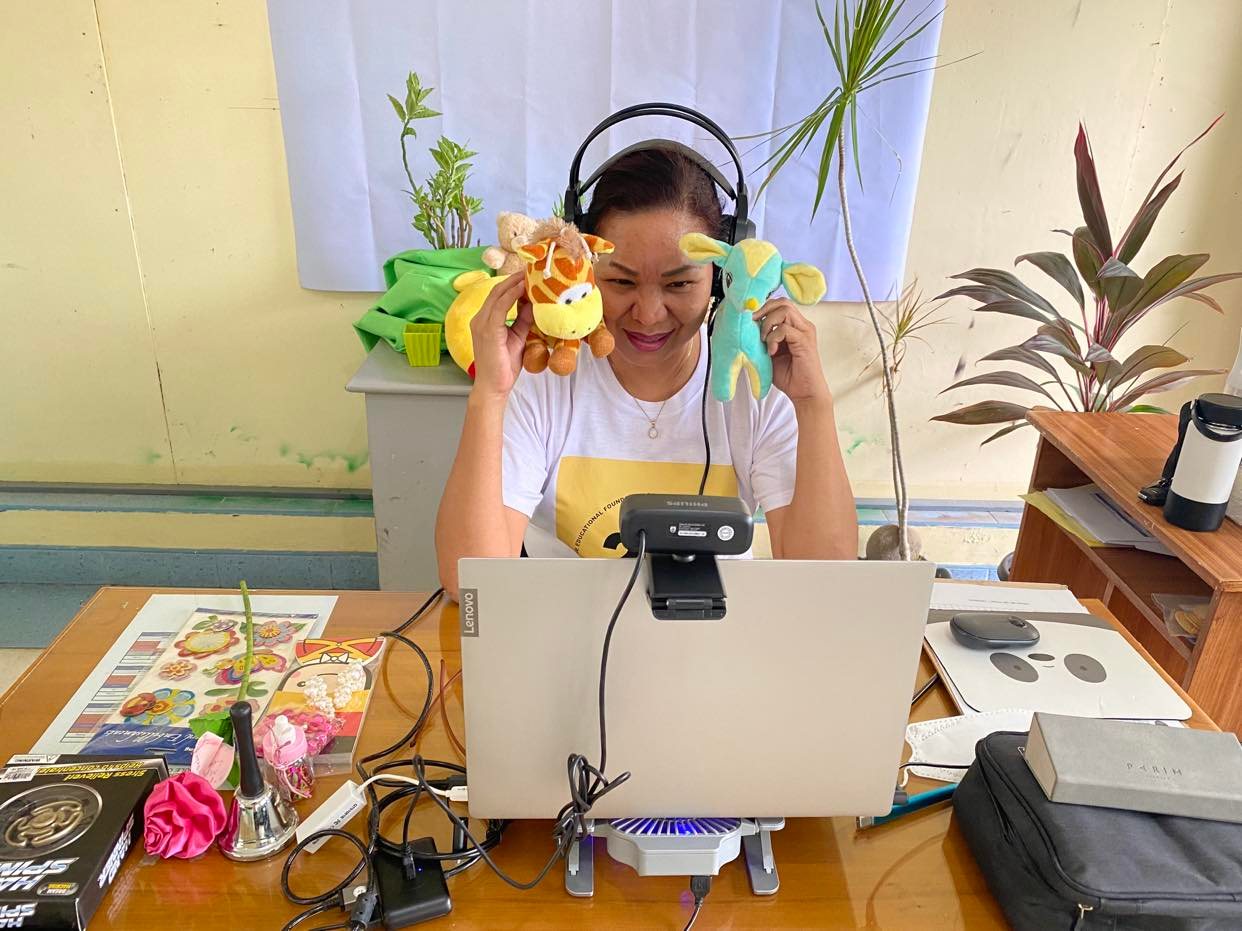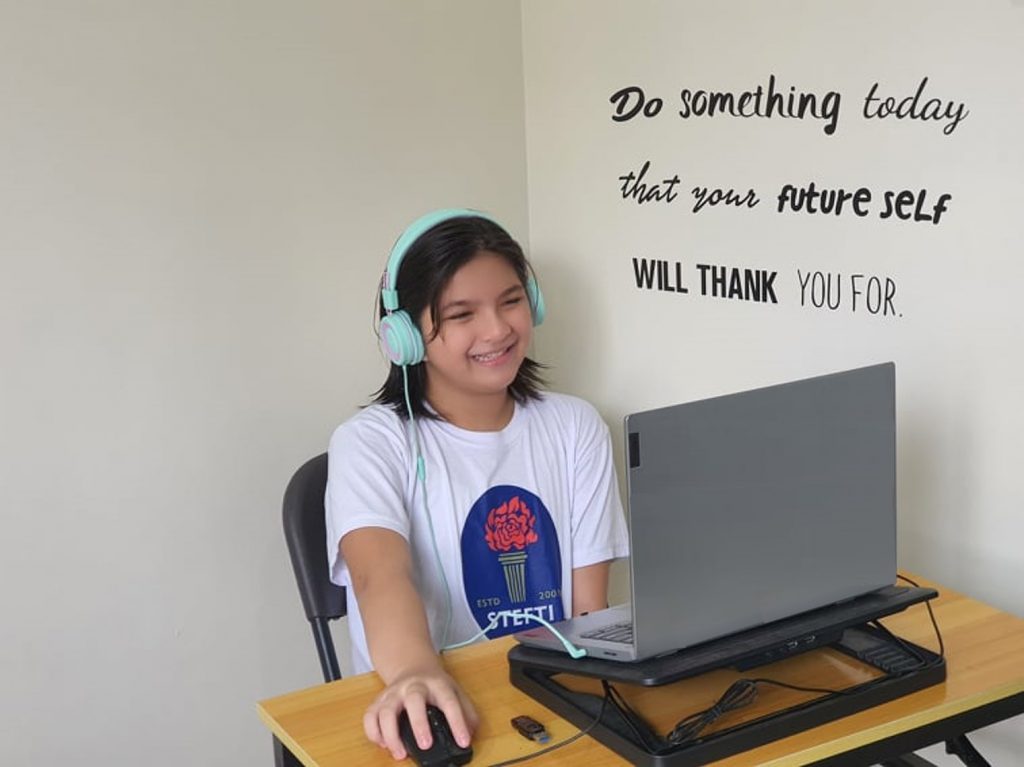
The rise of Covid-19 cases in Region VIII has given us all, students and parents alike, the same worries and anxieties we experienced during the first wave of the pandemic, even worse! What with everyone in the family getting the dreaded cough and colds, one after the other, and the drugstores running out of over-the-counter medicines? That was horrible, right?
Now, after that much-needed health break, everyone is up and about, preparing for summative tests and quarterly exams. We bounce back, we emerge, stronger than before! We are sharing here health tips from an article of the Makati Medical Center News and Blogs to help us stay fit and healthy as we attend our synchronous classes at home. Read and follow these recommendations and keep healthy always.

6 Health Tips for Students Attending Online Classes at Home
- Take regular breaks away from the computer screen.
Spending long periods of time looking at computer screens is one of the culprits for eye strain. On average, humans blink about 15 to 20 times every minute, but these numbers may decrease when someone is preoccupied, like looking at the computer.
Using the 20-20-20 rule is an excellent way to help avoid this kind of problem for homeschooling kids. This rule involves taking a break every 20 minutes by looking at something that’s 20 feet away for 20 seconds.
Aside from the harmful effect on children’s eyes, sitting for hours can also lead to a shorter lifespan for children as this can change the way their blood flows or their arteries work. Students can use their break time to leave their seats, step out of the room, or do some stretching. Even short bursts of movement go a long way in managing the effects of prolonged sitting.
- Stick to a routine and track progress.
Even if they’re studying from home, it would be better for students to follow the same routine they had in a traditional school. This should help them develop a mindset that involves knowing how to manage their time properly, with a specific schedule dedicated to classwork, end-of-day assignments, lesson review, and the like.
By keeping a regular schedule for their online classes, they’ll be able to log off on time and still have a chance to do other things they like.
- Prepare healthy meals and snacks.
Giving students healthy and nutritious food and drinks will keep them energetic, focused, and happy throughout the day.
Although it may be more convenient to serve school-age children with ready-to-eat snacks sold commercially, parents can try to be more creative in planning the household menu. Instead of junk food, they should come up with freshly prepared dishes during meal times.
- Drink lots of water.
In addition to eating healthy food, children should also develop the habit of drinking adequate amounts of water. For most people, the ideal amount of water to consume is four (4) to six (6) glasses, but this may vary depending on several factors.
With children attending online classes at home, parents could start training or retraining them to drink water gradually throughout the day, such as after each meal. Also, fruits are rich in water, so children need to have more of them in their diet to regulate their fluid consumption better.
- Get a good night’s sleep.
Good quality sleep is vital for children’s physical growth, cognitive abilities, and mental health. Experts recommend that children aged 6 to 12 should get 9 to 12 hours of sleep every day, while teenagers need 8 to 10 hours of shuteye to reset their body clock.
To promote good sleeping habits among young family members, parents could try setting some house rules like no watching of TV in the bedroom or not placing a cell phone by the bedside to be used as an alarm clock. The goal is to keep children away from things that may keep them awake late at night.
- Don’t forget to socialize or have family time.
Humans are social beings, and in this period of new normal, students are faced with a different set of challenges. With the lack of personal interaction with their teachers, classmates, or peers, children can easily feel isolated or socially detached. As such, parents and older members of the family should make themselves available and spend after-school quality time as a family.
Weekends should be free of any school work but instead filled with recreational activities, whether they want to play online games with their friends, have an online playdate, watch movies, bike at the neighborhood park, and so on. These things can be good reminders for children that, despite the challenges, they have their family, friends, and community to support them.
Reference:


